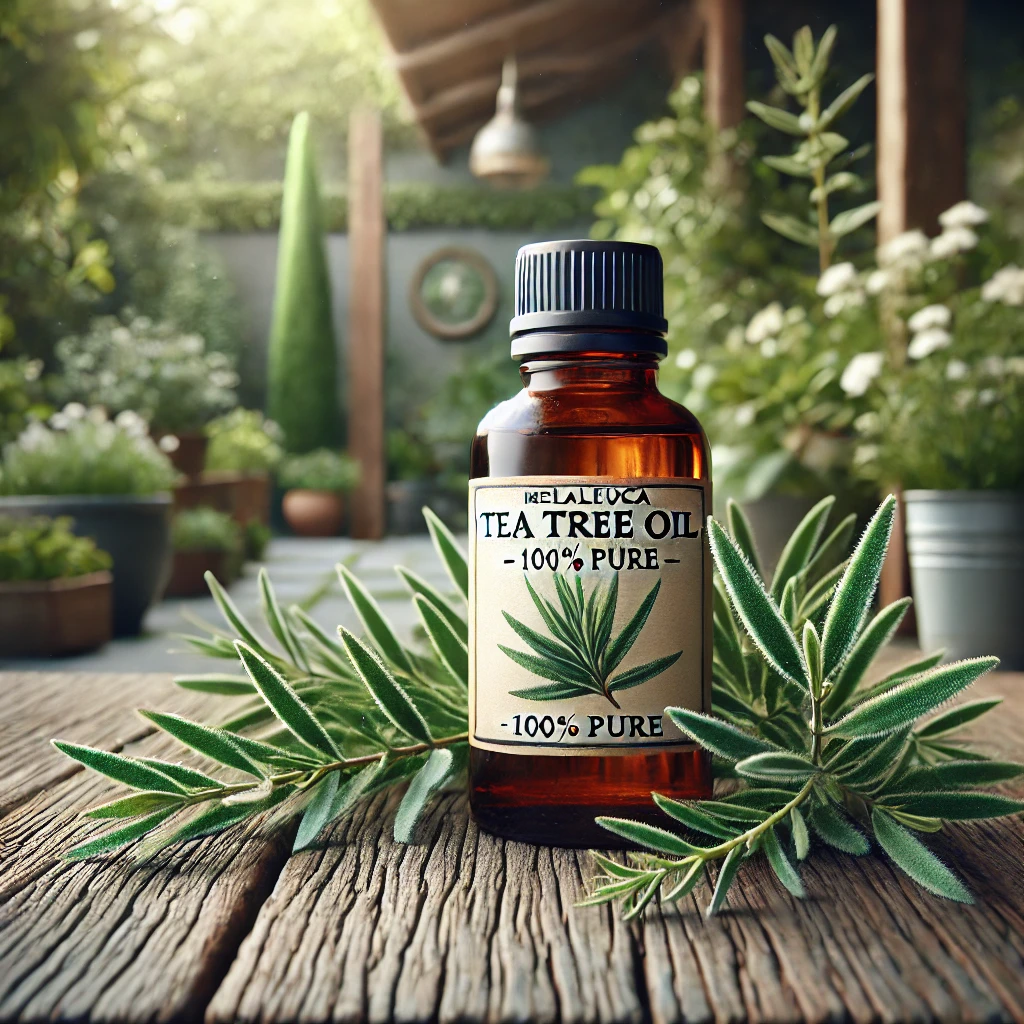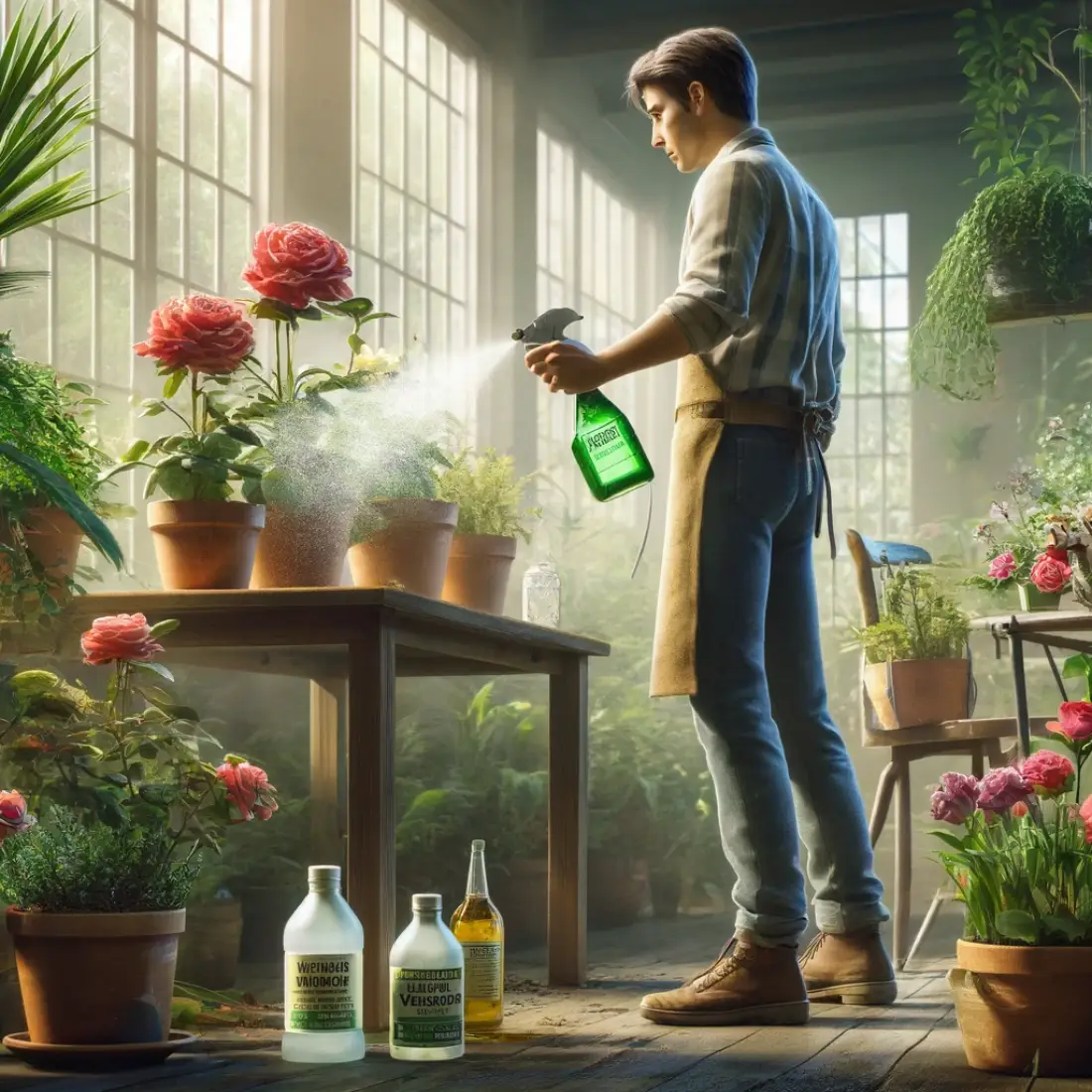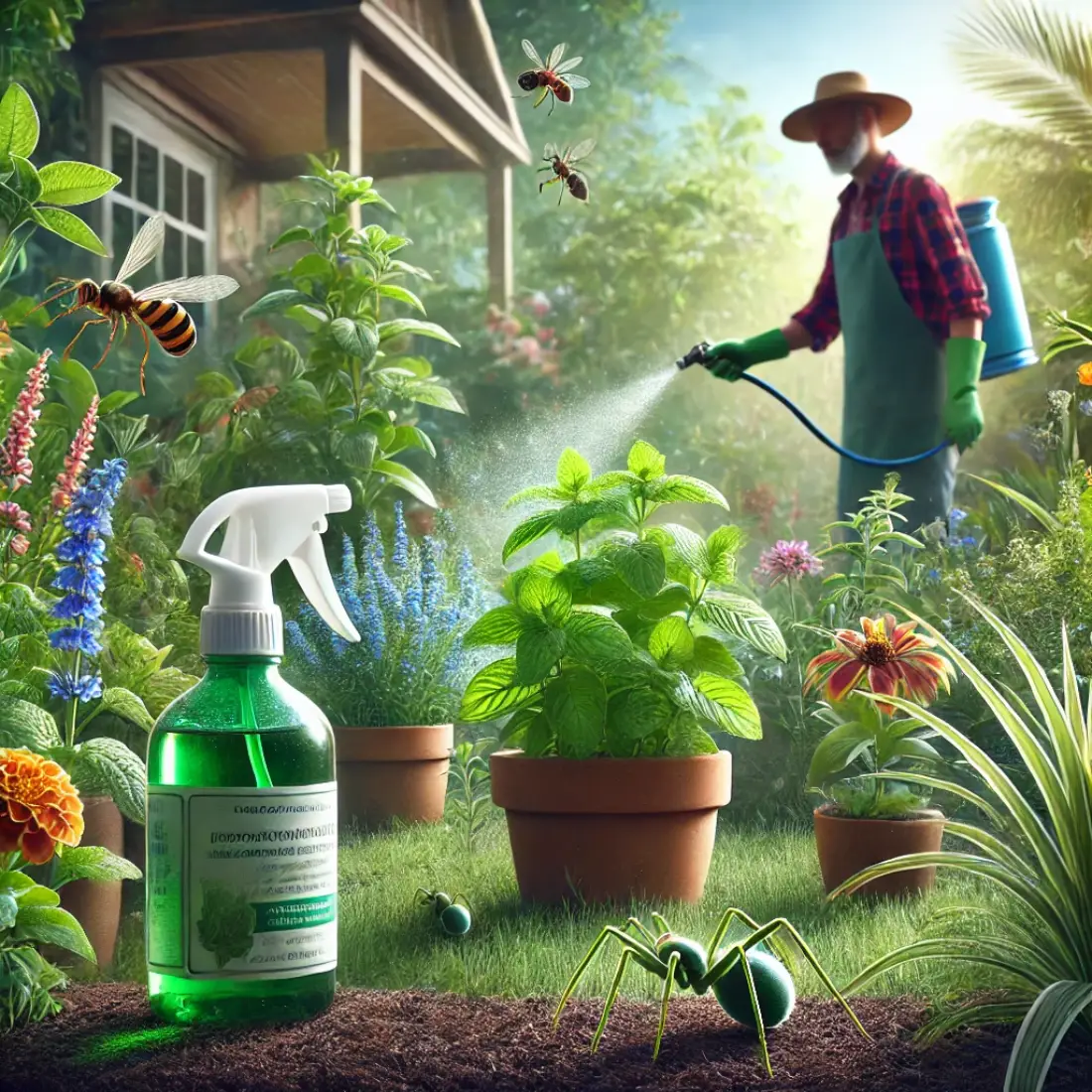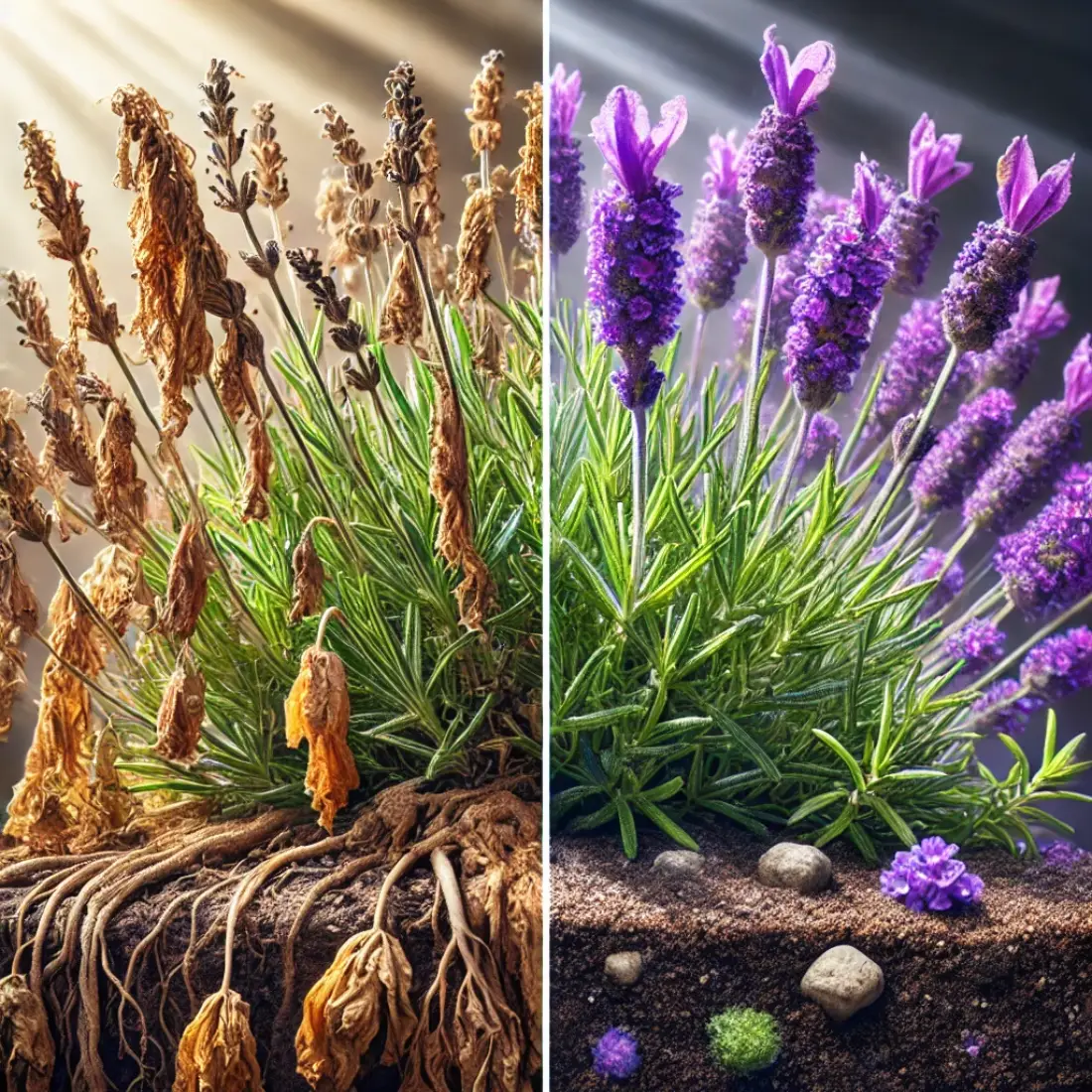Tea tree oil, derived from the leaves of the Melaleuca Alternifolia plant, is a versatile essential oil renowned for its potent antifungal, antibacterial, and antiseptic properties. While commonly associated with skincare and medicinal uses, tea tree oil has also gained popularity in gardening for its natural pest control and plant health benefits.
By incorporating tea tree oil into your gardening routine, you can manage pests, prevent diseases, and promote a healthy, vibrant garden.
- Tea tree oil is a natural solution for garden pest and disease control.
- It is effective against a variety of pests, including aphids and spider mites.
- The oil has antifungal properties that help manage common garden fungi.
- Tea tree oil is an eco-friendly and organic gardening alternative.
- Proper dilution and application methods are crucial for safe and effective use.
Benefits of Using Tea Tree Oil in Gardening
Tea tree oil offers numerous benefits in gardening, making it a valuable tool for gardeners seeking natural and effective solutions.
Natural Pesticide
Tea tree oil acts as a potent natural pesticide. Its strong scent and active compounds repel a variety of common garden pests, such as aphids, spider mites, and whiteflies. By using tea tree oil, gardeners can protect their plants from damage without resorting to harsh chemical pesticides, which can harm beneficial insects and the environment.
Antifungal Properties
Fungal infections like powdery mildew, blight, and root rot can devastate plants. Tea tree oil’s antifungal properties make it an excellent preventative and treatment option for these issues. Applying tea tree oil can help inhibit the growth of fungi, keeping plants healthy and disease-free.
Antibacterial Benefits
In addition to its antifungal properties, tea tree oil has antibacterial effects. It can help combat bacterial infections in plants, promoting overall plant health and resilience. This is especially useful in preventing the spread of bacterial diseases that can weaken or kill plants.
Eco-Friendly Alternative
Tea tree oil is a sustainable and eco-friendly alternative to synthetic garden chemicals. It breaks down naturally in the environment, reducing the risk of soil and water contamination. Using tea tree oil aligns with organic gardening principles, supporting a healthier ecosystem.
Versatile Applications
Tea tree oil can be used in various ways in the garden. It can be applied as a foliar spray, soil drench, or direct treatment to affected areas. This versatility allows gardeners to address specific issues effectively and efficiently.
Safe for Beneficial Insects
Unlike many chemical pesticides, tea tree oil is generally safe for beneficial insects such as bees, ladybugs, and butterflies. These insects play crucial roles in pollination and pest control, so preserving their populations is vital for a thriving garden.
Cost-Effective
Tea tree oil is a cost-effective solution for gardening issues. A small amount of tea tree oil, properly diluted, can cover a large area and provide lasting protection against pests and diseases. This makes it an economical choice for gardeners.
How to Use Tea Tree Oil in Gardening
Tea tree oil can be an effective tool for managing pests and diseases in your garden. However, it’s essential to use it correctly to ensure safety and effectiveness.
Preparing Tea Tree Oil Solutions
Before using tea tree oil in your garden, you need to prepare a diluted solution to avoid harming your plants.
Basic Solution:
- Mix 1 teaspoon of tea tree oil with 1 cup of water.
- Add a few drops of mild dish soap to help the solution mix well.
Concentrated Solution:
- For more severe issues, mix 2 teaspoons of tea tree oil with 1 cup of water.
- Add a few drops of mild dish soap.
Proper dilution is crucial when using tea tree oil to prevent potential plant damage. Always test the solution on a small part of the plant first to ensure it doesn’t cause damage.
Application Methods
There are several ways to apply tea tree oil solutions in the garden. Here are the most common methods:
Foliar Spray:
- Pour the diluted tea tree oil solution into a spray bottle.
- Spray the solution evenly on the leaves, stems, and affected areas.
- Apply in the early morning or late evening to prevent leaf burn.
Soil Drench:
- Use the diluted solution to water the soil around the base of the plants.
- This method is effective for root rot and soil-borne diseases.
Direct Application:
- For severe infestations or infections, apply the tea tree oil solution directly to the affected area using a cotton swab or a small brush.
- Ensure the application is localized to avoid harming healthy parts of the plant.
Tea Tree Oil as a Pesticide
Tea tree oil is effective against a variety of common garden pests. Here’s how to use it as a natural pesticide:
Target Pests:
- Tea tree oil works well against aphids, spider mites, whiteflies, and other soft-bodied insects.
- It also repels larger pests like ants and beetles.
Application:
- Spray the diluted tea tree oil solution directly onto the pests.
- Ensure thorough coverage of the plant, including the undersides of leaves where pests often hide.
Frequency:
- For prevention, apply the solution once every two weeks.
- For active infestations, apply every few days until the pests are gone.
Effectiveness:
- Many gardeners report success with tea tree oil for controlling pest populations.
- It’s essential to reapply after heavy rain or watering.
Tea Tree Oil for Fungal Control
Fungal diseases can be challenging to manage in the garden. Tea tree oil offers a natural solution:
Common Fungal Issues:
- Powdery mildew, blight, and root rot are common fungal problems that tea tree oil can address.
Application Techniques:
- Mix 1 teaspoon of tea tree oil with 1 cup of water and a few drops of dish soap.
- Spray the solution on affected areas, ensuring good coverage.
Preventative Measures:
- Apply the solution to healthy plants as a preventative measure.
- Use once a week during wet or humid conditions to prevent fungal growth.
Comparing Tea Tree Oil to Other Natural Solutions
Tea tree oil is not the only natural solution for pest and disease management in gardening. Several other natural remedies can also be effective.
Tea Tree Oil vs. Neem Oil
Neem Oil:
- Source: Derived from the seeds of the neem tree (Azadirachta indica).
- Properties: Antifungal, antibacterial, and insecticidal.
- Uses: Effective against a wide range of pests, including aphids, whiteflies, and mealybugs. It also works as a systemic pesticide, absorbed by plants and providing long-term protection.
- Application: Diluted with water and sprayed directly onto plants.
Comparison with Tea Tree Oil:
- Both oils have strong antifungal and antibacterial properties.
- Neem oil is often considered more versatile due to its systemic action, while tea tree oil is more of a contact treatment.
- Tea tree oil can sometimes be more effective against specific fungal issues.
- Neem oil has a broader range of pest control, making it a preferred option for many gardeners.
Tea Tree Oil vs. Garlic Spray
Garlic Spray:
- Source: Made from crushed garlic mixed with water.
- Properties: Antibacterial, antifungal, and insect-repellent.
- Uses: Effective against a variety of pests, including aphids, beetles, and caterpillars. Also used to prevent fungal diseases.
- Application: Sprayed directly onto plants and soil.
Comparison with Tea Tree Oil:
- Garlic spray is a good general repellent, whereas tea tree oil has stronger antifungal properties.
- Tea tree oil is less likely to affect the taste of edible plants compared to garlic spray.
- Both are eco-friendly and safe for beneficial insects when used correctly.
- Garlic spray is often easier and cheaper to make at home.
FAQs About Tea Tree Oil
How often should I apply tea tree oil to my plants?
It’s recommended to apply tea tree oil solutions once every two weeks for general maintenance and prevention. For active pest infestations or fungal problems, apply every few days until the issue is resolved. Always monitor your plants for any signs of adverse reactions.
Can tea tree oil harm my plants?
Tea tree oil can harm plants if used in high concentrations. Always dilute tea tree oil properly before application. A safe dilution ratio is 1 teaspoon of tea tree oil per 1 cup of water. Test the solution on a small part of the plant before widespread application.
Is tea tree oil safe for pets in the garden?
Tea tree oil can be toxic to pets if ingested in large amounts. When using tea tree oil in your garden, ensure pets do not have access to treated areas until the solution has dried. Always use diluted solutions and store the oil out of reach of pets.
What pests does tea tree oil repel?
Tea tree oil is effective against a variety of pests, including aphids, spider mites, whiteflies, and beetles. Its strong scent and active compounds repel these pests, helping to protect your plants from damage.
How do I make a tea tree oil spray for my garden?
To make a tea tree oil spray, mix 1 teaspoon of tea tree oil with 1 cup of water and add a few drops of mild dish soap. Pour the mixture into a spray bottle and shake well before use. Spray directly onto affected plants, ensuring thorough coverage.
Can tea tree oil be used for fungal diseases in the garden?
Yes, tea tree oil has strong antifungal properties that make it effective against fungal diseases such as powdery mildew, blight, and root rot. Apply a diluted solution (1 teaspoon of tea tree oil per 1 cup of water) to affected areas to help control and prevent fungal growth.
Is tea tree oil compatible with organic gardening practices?
Tea tree oil is an excellent choice for organic gardening. It is a natural, eco-friendly alternative to chemical pesticides and fungicides. When used properly, it helps maintain a healthy garden ecosystem without harming beneficial insects or the environment.
How long does it take to see results after applying tea tree oil?
The time it takes to see results can vary depending on the severity of the pest or disease issue. For pest control, you may see a reduction in pest activity within a few days. For fungal issues, it may take a week or more to notice improvement. Consistent application is key to achieving the best results.
Can tea tree oil be mixed with other natural remedies?
Yes, tea tree oil can be mixed with other natural remedies such as neem oil or garlic spray for enhanced pest and disease control. However, always test the mixture on a small area of the plant first to ensure there are no adverse reactions.
Where can I buy tea tree oil for gardening?
Tea tree oil can be purchased at health food stores, pharmacies, and online retailers. Look for pure, high-quality tea tree oil without added chemicals or fragrances. Ensure the product is labeled as suitable for therapeutic or external use.













